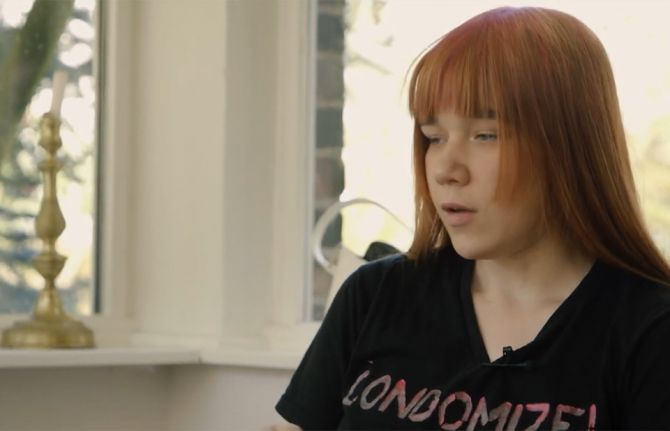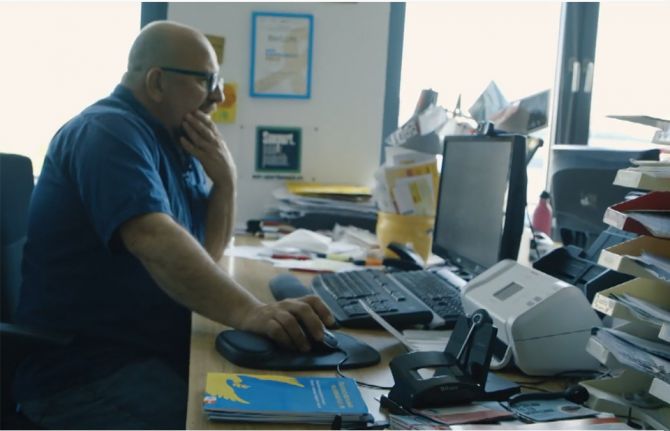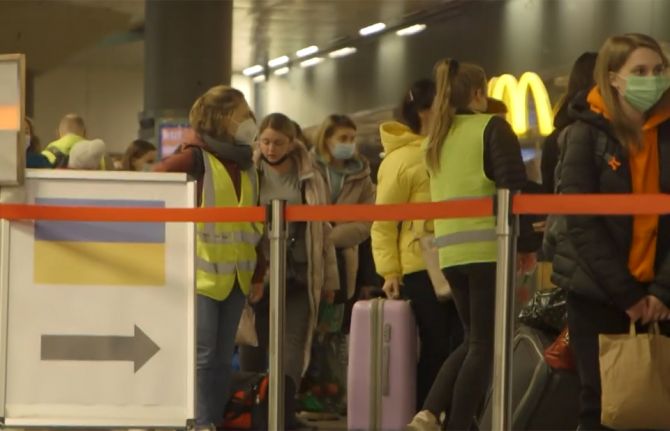



Feature Story
Helping Ukrainian refugees with HIV treatment and support in Berlin
20 May 2022
20 May 2022 20 May 2022More than 600 000 Ukrainian refugees arrived in Germany since the war broke out. Among them many people living with HIV – mostly women.
In the beginning many needed shelter and then there were lots of requests about obtaining HIV treatment. Many refugees had left their supply behind or took the bare minimum.
Vasilisa Sutushko, who was born with HIV, arrived in Berlin at the beginning of March and had only one month of HIV medicine with her. She also had no clue navigating the German health system. A local NGO, Berliner AIDS Hilfe, one of Germany’s oldest HIV organizations, was flooded with an influx of calls for help.
“I got these pills for €10 for three months,” Ms Sutushko said, pointing at a box of HIV treatment. “When I came to Berlin, I had to understand whether I received medicine for myself here for free or for a fee,” she said.
Unlike in her native country, she explained, in Germany you need a prescription for almost all medicines.
“In Ukraine, I can get any pills I need without any problems at the pharmacy,” Ms Sutushko said.
Berliner Aids-Hilfe’s migration consultant, Sergiu Grimalschi, said when the first refugees began to arrive there were few organized structures, so they had to improvise across the country. “We had to find an urgent solution,” he said.
They helped countless refugees with medicine, paperwork, housing, and other pressing health issues.
According to Berliner AIDS Hilfe, most of the refugees living with HIV won’t be able to go back until the bombed medical facilities are rebuilt.
Ms Sutushko, founder of Teens Ukraine – an NGO that helps young people who live with HIV- and others are now trying to set up a network to further help people living with HIV. Stigma and discrimination in Ukraine regarding one’s HIV status has made many refugees hesitant about seeking help or open about living with HIV in their adopted countries. "I'm happy to see people like me here who need help, I can also be helpful," she said.
UNAIDS estimates that 260 000 Ukrainians live with HIV. Up to 30 000 fled their country since the start of the war and need HIV treatment.
Interrupting treatment, even temporarily, can lead to drug resistance and increased risk of progression to AIDS.


